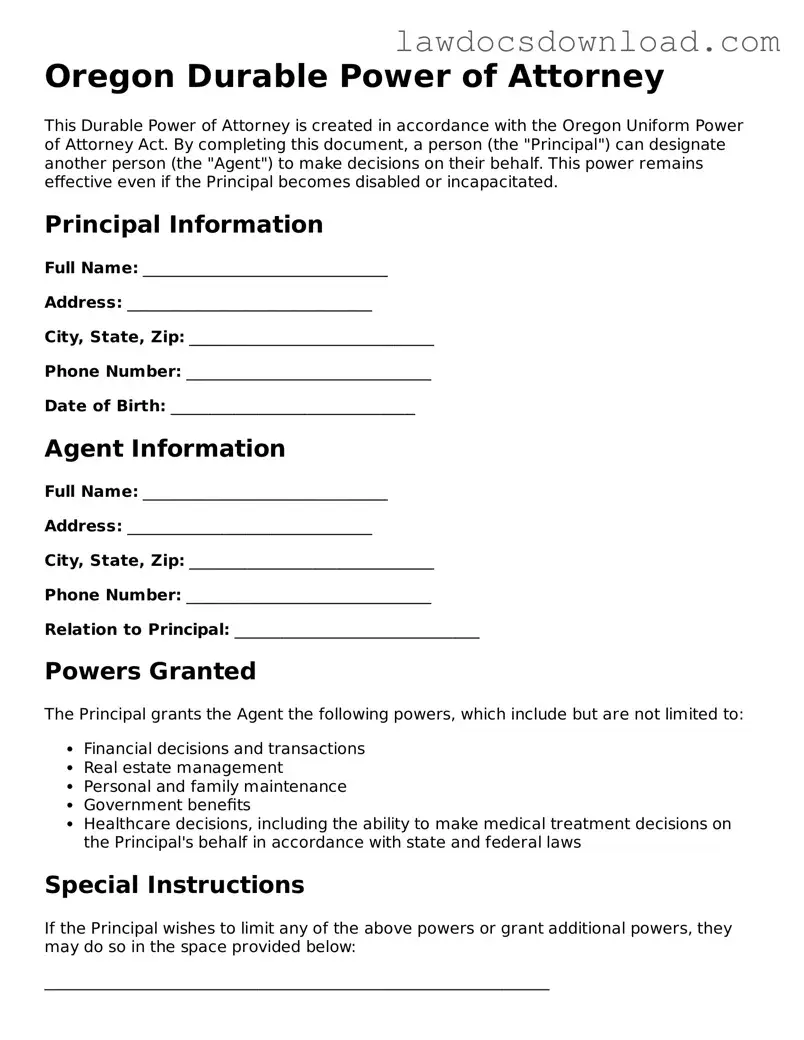Legal Oregon Durable Power of Attorney Form
The Oregon Durable Power of Attorney form is a legal document that allows you to appoint someone else to manage your financial affairs if you become unable to do so yourself. This form is "durable," meaning it remains effective even if you lose mental capacity. It's a critical tool for planning your financial future, ensuring that your matters are handled according to your wishes.
Launch Durable Power of Attorney Editor Here

Legal Oregon Durable Power of Attorney Form
Launch Durable Power of Attorney Editor Here

Launch Durable Power of Attorney Editor Here
or
Free Durable Power of Attorney
Get this form done in minutes
Complete your Durable Power of Attorney online and download the final PDF.